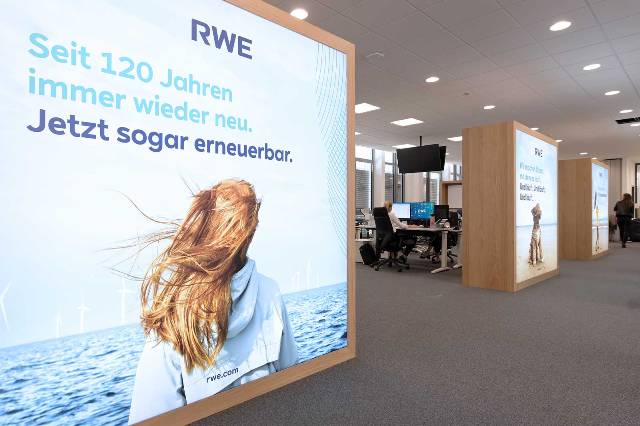Germany’s energy transition receives a major boost as RWE and Apollo Global Management partner to finance critical grid upgrades through a €3.2 billion joint venture.
German energy giant RWE has entered into a partnership with Apollo Global Management to fund upgrades of Germany’s power grid operator Amprion. Under the agreement, Apollo will contribute €3.2 billion ($3.75 billion) to a joint venture (JV) that will manage RWE’s existing 25.1 percent stake in Amprion.
Structure of the Deal
Apollo will inject its equity investment upfront, while RWE will reinvest in the joint venture over time to support Amprion’s grid expansion. The transaction, expected to close in the fourth quarter of 2025, will allow RWE to maintain operational control of the JV and continue consolidating Amprion’s stake in its financial reporting.
Apollo emphasized that the partnership provides stable dividend returns from Amprion’s regulated asset base, while RWE said the move will enable it to focus more on renewables, energy trading, batteries, and power generation.
Why the Investment Matters
Germany’s electricity grid requires massive investment to keep pace with the rapid growth of renewable energy capacity and the country’s plan to phase out fossil fuels. Grid operators like Amprion, Tennet Germany, and two other peers must upgrade infrastructure to integrate more wind and solar power into the national system, Reuters news report said.
Amprion recently announced a €36.4 billion investment plan for 2025–2029, representing a 32.4 percent increase compared to the previous five-year plan. These investments will be crucial for ensuring grid stability, expanding cross-border connections, and supporting the broader European clean energy transition.
Ownership and Governance
Following the deal, the M31 investor group will continue to hold a 74.9 percent stake in Amprion, while Apollo and RWE’s JV will control the remaining 25.1 percent stake. The companies have not disclosed the precise shareholding split within the joint venture.
The partnership underscores a growing trend of private equity investors entering Europe’s energy infrastructure sector, drawn by stable, regulated returns and long-term demand growth for electricity networks.
The deal follows similar moves in Europe, where governments and utilities are seeking private capital to finance grid modernization. For example, the Dutch government, which oversees Tennet Germany, is actively searching for partners to cover its soaring investment needs.
GreentechLead.com News Desk

